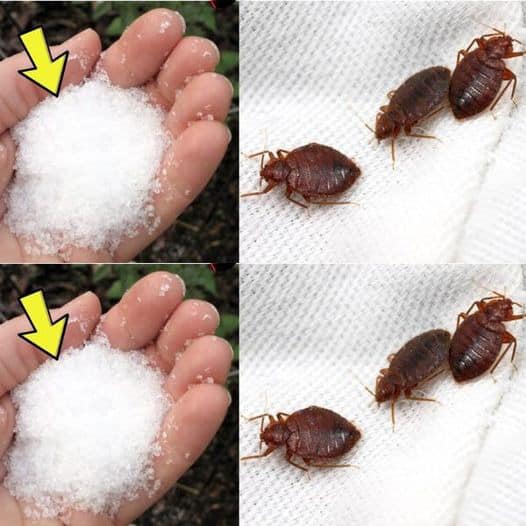Bedbugs, those pesky invaders, often wreak havoc on our plants, and occasionally, even find their way into our homes. While they might be unsightly and unsettling to see, they are not harmful to humans. However, when it comes to plants, it’s an entirely different story.
Understanding the Bedbug Menace
Bedbugs, especially the green variety, tend to blend with the foliage, making them hard to spot. Despite their small size and innocuous appearance, they are formidable foes for plants. They don’t just feed on the plant sap; they can also transmit bacteria and viruses that can result in severe plant ailments.
Such diseases can hinder a plant’s growth, disrupt its fruiting or flowering, and in extreme cases, terminate its life altogether.
Commercially available insecticides, while effective to some extent, often contain harmful chemicals. The remedy we’re about to share with you is not only simple but also natural, ensuring that your garden remains chemical-free.
A Natural Solution to the Bedbug Problem
Bedbugs, despite their size, can be resilient, even against potent chemical insecticides. In larger areas, like gardens or vegetable patches, they can be especially challenging to manage.
But worry not, there’s a natural solution right in your kitchen that can help: Baking powder!
DIY Non-Chemical Insecticide Recipe:
Ingredients: Baking powder & water
Instructions:
Take a sachet of baking powder and dissolve it in a liter of water.
Once fully dissolved, transfer the solution to a spray bottle.
Spray this concoction on the affected plants – both on leaves and the soil. The bedbugs will be deterred by this solution, ensuring your plants remain unharmed.
Baking powder, with its innate properties, not only repels the bedbugs but also prevents future infestations.
Other Natural Alternatives to Combat Bedbugs:
Garlic Spray: Dissolve a garlic clove in a liter of boiling water. Let it steep in the refrigerator for a week, then strain and transfer to a spray bottle. The potent smell of garlic is a strong deterrent for bedbugs.
Diatomaceous Earth: Available at garden centers, this natural remedy can be sprinkled around the garden, in quantities depending on the severity of the infestation.
Herb Solutions: Bedbugs dislike strong smells. Consider making sprays based on rosemary, basil, or sage. These herbs not only keep the bugs at bay but also add a pleasant aroma to your garden.
By employing these natural remedies, you’re not only ensuring a bedbug-free garden but also maintaining a chemical-free, eco-friendly environment. Happy gardening!
